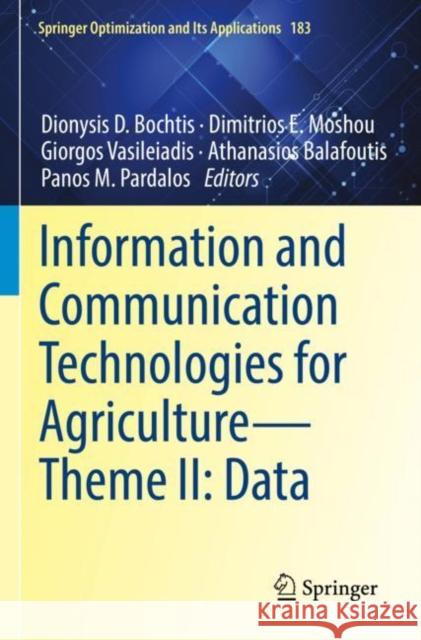Information and Communication Technologies for Agriculture—Theme II: Data » książka
Information and Communication Technologies for Agriculture—Theme II: Data
ISBN-13: 9783030841508 / Angielski / Miękka / 2023 / 288 str.
This volume is the second (II) of four under the main themes of Digitizing Agriculture and Information and Communication Technologies (ICT). The four volumes cover rapidly developing processes including Sensors (I), Data (II), Decision (III), and Actions (IV). Volumes are related to ‘digital transformation” within agricultural production and provision systems, and in the context of Smart Farming Technology and Knowledge-based Agriculture. Content spans broadly from data mining and visualization to big data analytics and decision making, alongside with the sustainability aspects stemming from the digital transformation of farming. The four volumes comprise the outcome of the 12th EFITA Congress, also incorporating chapters that originated from select presentations of the Congress.The first part of this book (II) focuses on data technologies in relation to agriculture and presents three key points in data management, namely, data collection, data fusion, and their uses in machine learning and artificial intelligent technologies. Part 2 is devoted to the integration of these technologies in agricultural production processes by presenting specific applications in the domain. Part 3 examines the added value of data management within agricultural products value chain.The book provides an exceptional reference for those researching and working in or adjacent to agricultural production, including engineers in machine learning and AI, operations management, decision analysis, information analysis, to name just a few.Specific advances covered in the volume:Big data management from heterogenous sourcesData mining within large data setsData fusion and visualizationIoT based management systemsData Knowledge Management for converting data into valuable informationMetadata and data standards for expanding knowledge through different data platformsAI - based image processing for agricultural systemsData - based agricultural businessMachine learning application in agricultural products value chain
- Big data management from heterogenous sources
- Data mining within large data sets
- Data fusion and visualization
- IoT based management systems
- Data Knowledge Management for converting data into valuable information
- Metadata and data standards for expanding knowledge through different data platforms
- AI - based image processing for agricultural systems
- Data - based agricultural business
- Machine learning application in agricultural products value chain











